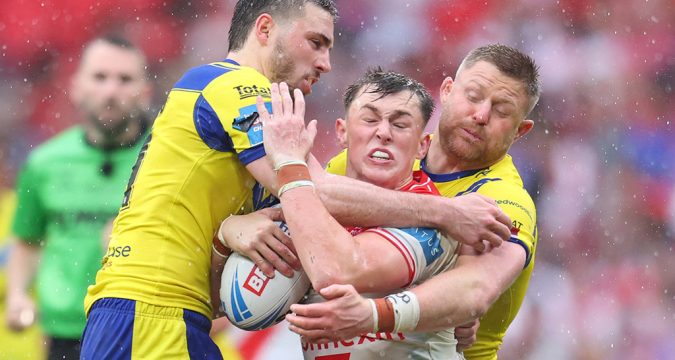 HULL KR are Challenge Cup winners for only the second time in their history after snatching victory from Warrington Wolves at the end of a gripping Wembley final.
The one key stat is that the Robins scored eight points to six - but here are some of the other numbers that told the story of the game, courtesy of Opta.
Warrington enjoyed the bet
HULL KR are Challenge Cup winners for only the second time in their history after snatching victory from Warrington Wolves at the end of a gripping Wembley final.
The one key stat is that the Robins scored eight points to six - but here are some of the other numbers that told the story of the game, courtesy of Opta.
Warrington enjoyed the bet Challenge Cup final stats – most tackles, most metres, possession and the kicking battle
 HULL KR are Challenge Cup winners for only the second time in their history after snatching victory from Warrington Wolves at the end of a gripping Wembley final.
The one key stat is that the Robins scored eight points to six - but here are some of the other numbers that told the story of the game, courtesy of Opta.
Warrington enjoyed the bet
HULL KR are Challenge Cup winners for only the second time in their history after snatching victory from Warrington Wolves at the end of a gripping Wembley final.
The one key stat is that the Robins scored eight points to six - but here are some of the other numbers that told the story of the game, courtesy of Opta.
Warrington enjoyed the bet 